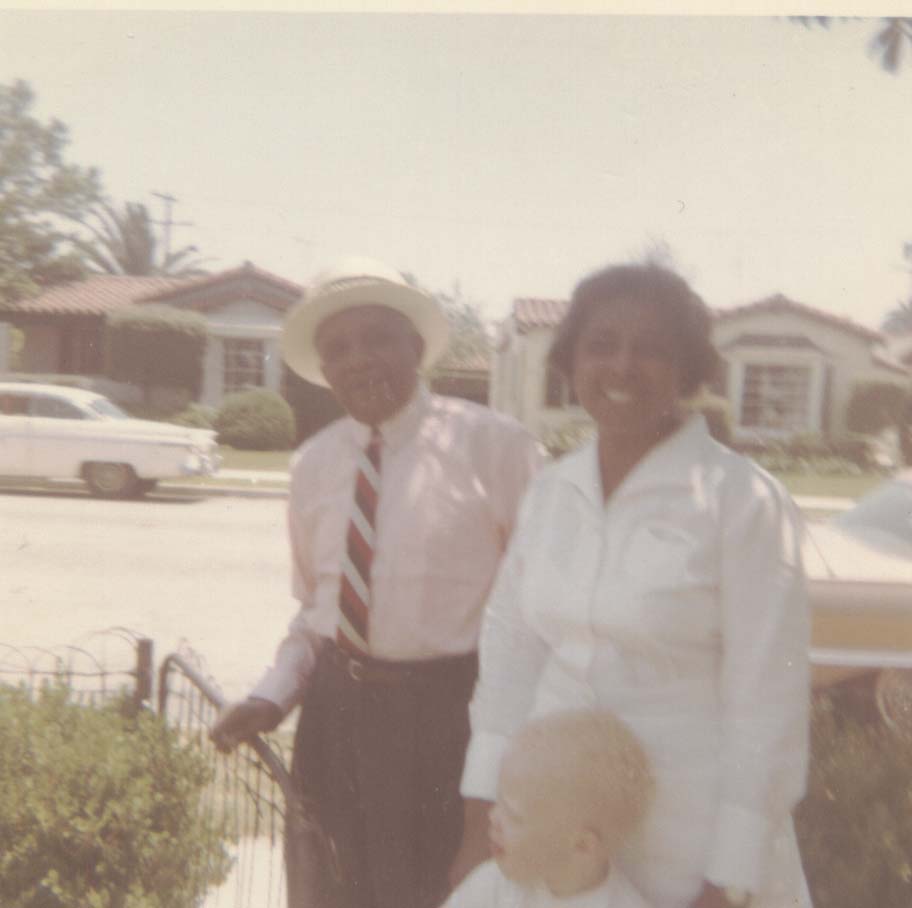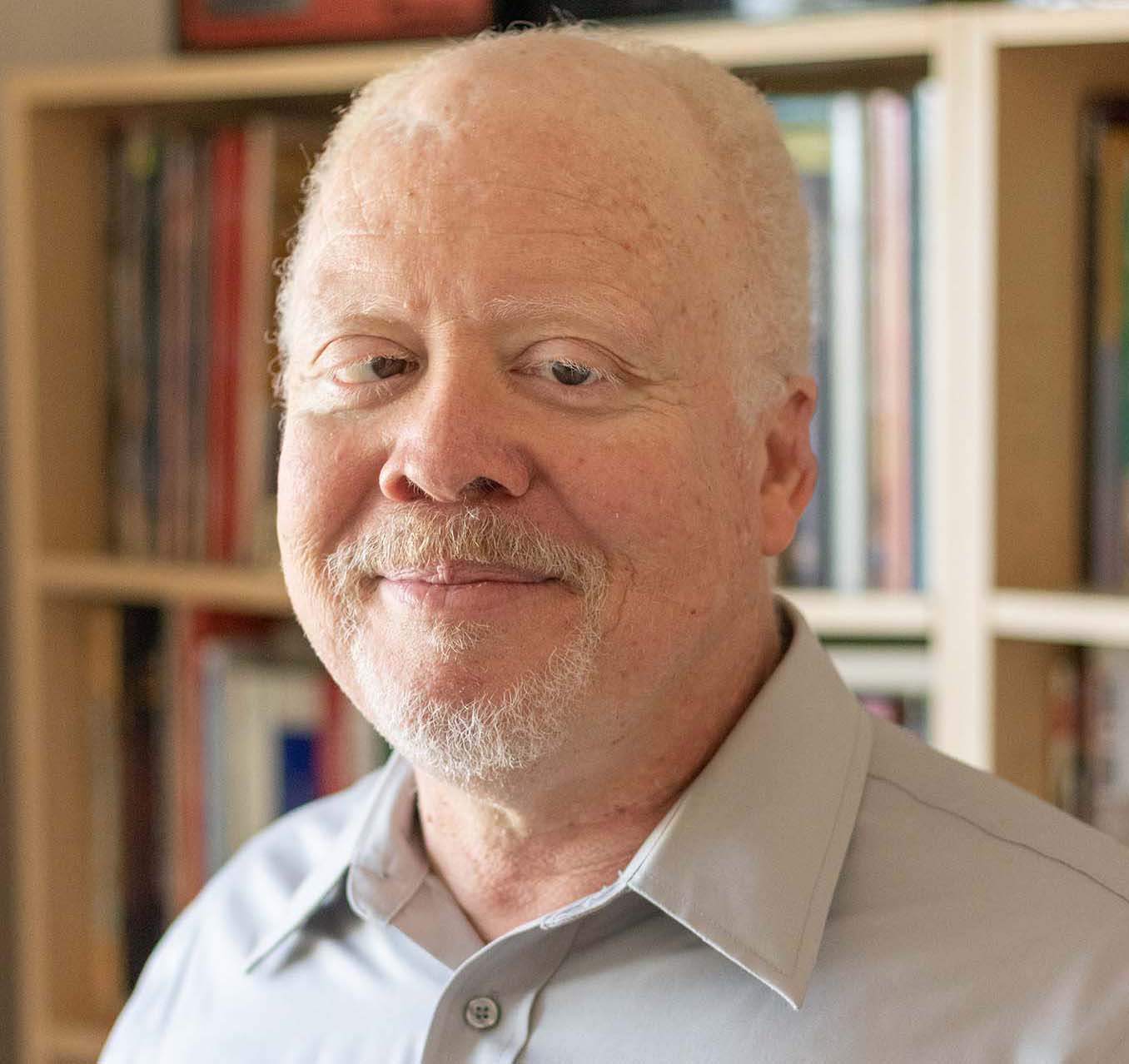A Fire in His Eyes
Andre Bullock is tenacious. He had to be.
By Christopher Park
Little Andre Bullock entered the world on a Friday in the autumn of 1960, and his parents wanted nothing to do with him.
Bullock’s father swore he was not the father and left before he was born. Bullock’s mother was young and uncertain but knew that he came too early in her life. She tried to be a mother anyway, but Bullock’s great grandparents took him in permanently by age seven.
Something was not right about Bullock. He was Black, but his skin was powder white. When a family member waved his finger left to right, right to left, little Bullock did not track it. He could see, but barely—Bullock was born with albinism, a condition that sapped his skin of pigment and degraded his sight where anything beyond a few feet was an abstraction. His vision was further impaired by nystagmus, which made his eyes involuntarily wander and dart. He had no other choice. He learned to live with it.
Bullock loved electronics. He built his first flashlight by seven and built an antenna for his old radio to listen to his favorite station.
By nine, he was stripping down old radios to inspect every component.
 By his teens, he repaired televisions and was paid in joy and amusement. (The money he earned was also nice.) By his 20s, he built decoders and circuits. Bullock had to get close to the electronics. He had no other choice. He loved what he saw—learning to read the schematics, understanding the components and radio theory. It lit a fire in him. Bullock ('84, engineering technology) knew this much early on: I am an engineer.
By his teens, he repaired televisions and was paid in joy and amusement. (The money he earned was also nice.) By his 20s, he built decoders and circuits. Bullock had to get close to the electronics. He had no other choice. He loved what he saw—learning to read the schematics, understanding the components and radio theory. It lit a fire in him. Bullock ('84, engineering technology) knew this much early on: I am an engineer.
“I didn’t come to school not knowing what I’d major in,” he says. “I still remember my first day, March 30, 1981, because of how excited I was to know that I was on my way to becoming an engineer.”
“I want to make it easier for someone else to take their place in the world like I have. At the risk of sounding a bit immodest, I want a bright person like me to show up and take my place.” – Andre Bullock (’84, engineering technology)
He breezed through his first quarter just like he did in his two years of junior college before that, where he earned an associate degree in computer technology. Bullock relied on teaching himself—he could not see what a professor wrote on the board. He read his textbooks closely, his nose on every page.
Once he started his core engineering classes, the textbook mattered less and what the professor wrote on the board mattered more. Bullock could infer some of it by the movements he could perceive: The professor has drawn a triangle, a symbol for an operational amplifier. His stroke on the chalkboard starts from the upper left and ends on the lower left. Those are inverting and noninverting terminals. He picked up little else.
“I wasn’t getting any of what the professor was teaching. I fell on my face, to be blunt. In the 1980s, our society really didn’t have a way of looking at people like me with ‘we’re trying to bring you along.’ You showed up to either pass or fail. I wasn’t inclined to ask for help, having done so much on my own.”
Bullock went from dean’s list to academic probation in two quarters. In his summer quarter while taking notes, he wrote in despair: “There seems no way to overcome the situation of present.”
He reminds himself: I am an engineer.
He got a monocular, a small handheld telescope, to see the board and looked through it with one eye to take notes. It was always difficult, but what could be done? He had no other choice. Bullock salvaged his GPA back to a 2.8. By 1984, he earned his diploma. I am an engineer.
During job interviews, Bullock would be shown drawings by employers of what they were working on. Bullock bluffed with an interested glance—he could not see any of it. Northrop Grumman hired him, but the jig was up. “It was soon figured out that I couldn’t see worth a damn.”
Northrop did not mind, but one of their clients did. They were concerned about Bullock’s inability to drive. At the client’s test launch, Bullock was asked to leave and was sent back on a plane. With his tail between his legs, he was let go in the first round of layoffs. Among the wave of college hires Bullock was a part of, he was the only one let go. He was given two weeks to find a new job while human resources tried to find a new position for him in the company. Neither panned out.
The woman in human resources said to him, “I’m probably not supposed to tell you this, but they’re concerned about your eyes.”
What about my eyes? I am an engineer.
Bullock learned to drive. He had no other choice. He got biotic lenses, a miniature telescope mounted on top of glasses, and completed a driving program. He bought a modest sedan. He spent thousands out of pocket while making no income. Still, no one hired him, and he had exhausted his savings. By his sixth month of unemployment, he thought of quitting engineering and applied for a job selling insurance.
No. I am an engineer.
During this impasse, Bullock called L’Garde, an aerospace company in Tustin, Calif. He reached Andy Becht, their electronics lead. If Bullock were willing to drive to Tustin for an interview, Becht would meet with him. So, he put on his biotic lenses, recalled what he learned in the driving program, got into his modest sedan, and drove.
“I didn’t even know where Tustin was until I got off the phone with Andy.”
That was the hard part. The rest was easy. Becht asked Bullock if he liked paperwork or electronics. Bullock spoke from the heart—learning to read schematics, understanding components, and radio theory—he went on and on. Becht saw the fire in his eyes. Bullock worked at L’Garde for 10 years. Now he is a principal systems engineer at Raytheon.
“I’m disinclined to give up and I’m not terribly interested in those who can’t find within themselves the love for what they want and aren’t willing to keep pushing for it.
I don’t mean to be unkind when I say that.”
Bullock understands tenacity better than most, and he wants to help students in the same way he would have wanted the help when he was one. That is why he started two $10,000 scholarships at Cal Poly Pomona. One of the two is for students who are registered with the university’s Disability Resource Center.
“I want to make it easier for someone else to take their place in the world like I have. At the risk of sounding a bit immodest,
I want a bright person like me to show up and take my place.”
Andre Bullock never had a choice. It is in his heart to give, in the same way that he is an engineer.
Photo above: Andre Bullock with his great grandparents.
